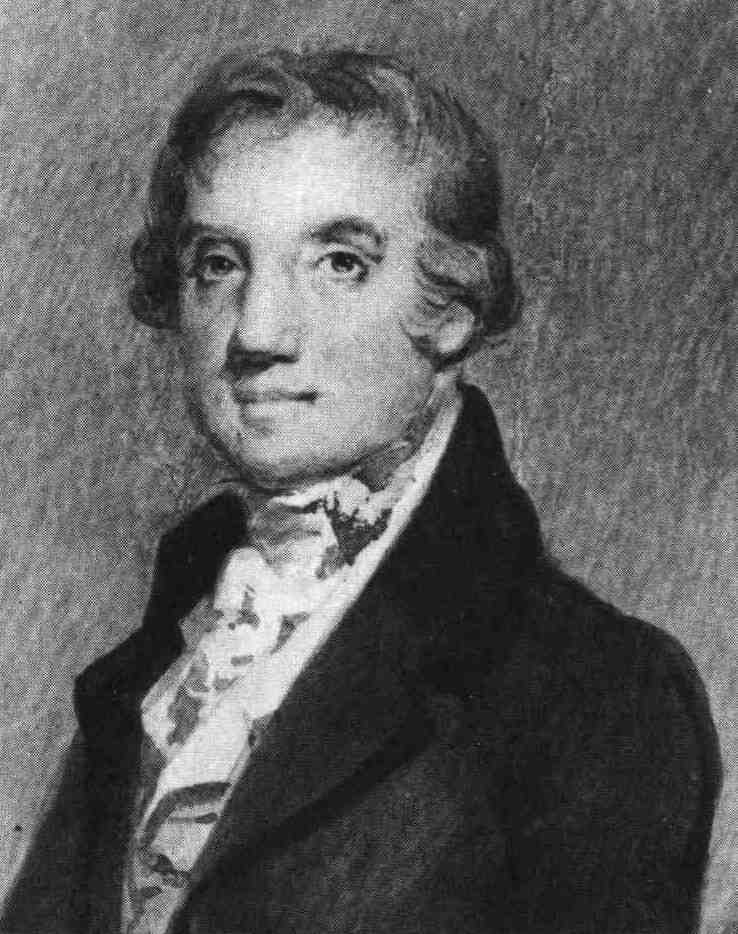Same deal as the last signup thread, post your characters here. Remember you can only have one aux; if you want two political characters they should belong to different branches of government, ex. a Senator and a Representative.
Note that at game start, the following positions are filled:
POTUS: Hammitt Poole
Vice-President: Edward Lamberth
Secretary of State (Cabinet member): Jack Eggers
Secretary of the Treasury (Cabinet member): Elon Massie
Format (insert image here if you want)
Name:
Date of Birth: (include age at game start; note that you must be at least 35 to be POTUS, 30 to be a Senator, and 25 to be a Representative)
Ethnicity:
Religion:
Occupation:
Position: (President/Vice-President/Senator/Cabinet member/Congressman/General/Admiral)
Home State: (one of the Thirteen Colonies + Vermont + any new state, or just 'Western Frontier' if you happen to be from unorganized western territories like the future Kentucky or Michigan)
Allegiance: (at game start the only options will be USA or the Whiskey Rebels)
Faction: (Please differentiate between your main and sub-faction: ex. Pro-Administration Clique (High Federalist) or Anti-Administration Clique (National Republican))
Money: (useful when building province improvements or campaigning in election season)
Personality: (at least one paragraph of 6 sentences, as usual)
Biography: (at least one paragraph of 6 sentences, as usual)
Issues:
Ethnicities Northern Anglo-American: You're an American of primarily English stock and come from New England or the Mid-Atlantic states of New York, New Jersey, Delaware, Pennsylvania and Maryland. You might have been born in the Thirteen Colonies or in the Home Isles, but either way you are now here, standing alongside your fellow Patriots in arms against the Crown you once served. You are especially likely to have been a merchant and/or naval officer prior to the war; your political views are likely to stray towards the radical end of the spectrum, but favor centralization (ex. sweeping federal powers, a strong standing military in peacetime, taxes ranging from moderate to borderline oppressive, a national bank) over the decentralization preferred by the Westerners; and you are likely to be a more independent-minded Protestant as opposed to an Anglican with the serial numbers filed offEpiscopalian.
Southern Anglo-American: You're an American of primarily English stock and come from the Southern states of Virginia, North Carolina, South Carolina, or Georgia. You might have been born in the Thirteen Colonies or in the Home Isles, but either way you are now here, standing alongside your fellow Patriots in arms against the Crown you once served. You are especially likely to have been a major planter prior to the war, the mirror image of the landed gentry across the Atlantic; your political views are likely to stray towards the conservative end of the spectrum in contrast to your more radical Northern and Western hopeful-countrymen; and you are likely to be an Episcopalian, which is to say, the closest you can get to your traditional Anglicanism while fighting the head of that particular church.
Western Anglo-American: You're an American of primarily English stock and come from the rugged & sparsely-populated Western frontier, which has yet to be organized into formal states. You might have been born in the Thirteen Colonies or in the Home Isles, but either way you are now here, standing alongside your fellow Patriots in arms against the Crown you once served. You are especially likely to have been a soldier or yeoman farmer before the war; your political views are likely to stray towards the radical end of the spectrum, but favor decentralization (ex. a weak federal gov't, a reliance on state militias, low or even no taxes, multiple competing independent banks) instead of the centralizing policies favored by the Northeasterners; and you are likely to be a more independent-minded Protestant as opposed to anAnglican with the serial numbers filed offEpiscopalian.
Irish: You're an Irish-American, likely driven here by the policies of the British government back on the Emerald Isle; alternatively, your ancestors fled here for the same reason, and you were born in the Thirteen Colonies. Either way, hating British tyranny is practically your national sport, and for good reason....or well, it would be if there was an Irish nation, but since an independent Eire is unlikely in the foreseeable future you'll settle for the next best thing and fight alongside the Patriots for a new homeland. You're especially likely to be a Catholic, which means you most likely hail from Maryland or one of the other Mid-Atlantic states such as New York, but politically you tend towards the radical end of the spectrum, though whether you support centralization or not is entirely up in the air.
Scots-Irish: You're an American of mixed Scottish and Irish lineage, and your ancestors would have had an easier time under British rule than your purely Irish cousins. Nevertheless, for whatever reason you have joined the rebellion against King George. You're likely to be a soldier or yeoman farmer hailing from the Southern states or the Western frontier, especially the Appalachian area where you've been stuck since you or your ancestors decided servicing the whims of the Tidewater planters was a bad idea; you're likely to favor decentralizing policies, but you can well be a conservative in other matters such as slavery; and you are almost certain to be a hardline independent Protestant.
Dutch: You're a Dutchman, whether a recent immigrant or one born in the Thirteen Colonies; in the latter case, your family may have reached back to the 17th century, when Dutch settlers first built New Amsterdam - and now you have a chance to relive their conflict with the English, only hopefully this time you & your people will win instead. Your people are concentrated primarily in New York and the Mid-Atlantic states, particularly the former New Netherland colony. You are likely to either be either a more conservative patroon, essentially the Mid-Atlantic Dutch-flavored equivalent to Southern planters who's more reliant on nominally-free tenants than actual slaves, or a liberal-minded merchant tycoon following in the footsteps of his trading ancestors, and to follow a Protestant creed.
French: You're a Frenchman. Whether you were born in the Thirteen Colonies or moved there, you've opted to align with the colonials against your forefathers' (and possibly yours, if you fought in the French & Indian War) traditional enemies over in Blighty. Depending on where you are you could be a soldier who fought in the French & Indian War, a successful merchant if you're up North or a Southern planter with Huguenot roots. You can hail from any of the Eastern states, from Massachusetts to Georgia, but either way you're likely to be a Catholic or Huguenot, and to carry traditionally pro-centralist but otherwise moderate political leanings.
German: You're a German. Well, it makes some sense for you to be in the Thirteen Colonies, after all the Royal Family themselves are Germans! Nevertheless, you're fighting with the Patriots for whatever reason - any feelings of ethnic solidarity with the House of Hanover have long faded by now. You're more likely to hail from the Northern or Mid-Atlantic states than the South and to have been a soldier or pauper before the war's outbreak, and have plenty of freedom in terms of religious choices; Prussian Protestant or Austrian Catholic, it's all up to you.
African-American: You're a free black man. Whether you were born free or became that way (legally or illegally), you've thrown your lot in firmly with the Patriots against the British authorities who have ruthlessly exploited your people for centuries (granted, a good number of said exploiters are Patriots too, but hey). You are especially likely to hail from (or at least have fled/moved to) New England, where anti-slavery sentiments are strongest, and to follow any religion save Enlightenment Rationalism; if nothing else, your people are known for their fierce religious devotion even in the face of systematic oppression. You are especially unlikely to get along with any planters regardless of ethnicity or creed, and though you will heavily favor radical politics & can be of a centralist or anti-centralist tendency, the nationwide abolition of slavery in whatever country arises from this mess (enforced by gunpoint if necessary) is extremely likely to be your highest priority.
Native American: You're a Native American from a pro-Patriot tribe, such as the Tuscarora or Oneida. It may grieve you to have to fight against your kinsmen, many of whom have remained loyal to the British, but for whatever reason you have decided that siding with the colonists is the best way forward for your people as a whole. You're especially likely to hail from the Western Frontier for obvious reasons, to follow one of the Protestant sects or your traditional Native Spirituality, and to favor decentralization alongside radical or conservative politics. Whether you define yourself as a conservative or radical though, the settlement of new treaties forbidding further white migrations into your lands should be your highest long-term priority, for obvious reasons.
Religions Episcopalian: You are an Episcopalian. Prior to the outbreak of war you were an Anglican of variable devotion, but since it's rather difficult to continue calling yourself that while you're making war upon the British King, you've opted to transfer your prayers and oaths to the cause of the Revolution while still preserving as much of the central hierarchy & traditions of the Anglican Communion as you can. You are likely to be a moderate or conservative, and especially likely to be wealthy and/or Southern.
Lutheran/Reformed: You're what one could call a 'normal' Protestant, or in other words, part of the religious majority of the Thirteen Colonies - Lutherans, Presbyterians, Baptists, what have you. You are likely to have come from a poor or middle-class background in contrast to the primarily upper-class Episcopalians, and to favor moderate or radical policies. You may believe that any future central government should be weak, as surely as your church does not rely on any intricate hierarchy, or you may not allow your faith to have any place in your politics at all; you are generally not likely to be as fanatical as your Congregationalist cousins, to be sure.
Congregationalist/Calvinist: You are part of one of America's many Congregationalist or Calvinist churches and sects. You are an heir to the Puritan tradition of the 16th and 17th centuries, the same zealously disciplined men and women who set up communities such as the ever-famous Plymouth. You are almost assuredly a zealous believer, perhaps even an outright fanatic who wants to see everyone else converted or destroyed, but one who favors the same decentralizing tendencies mirroring the lack of organized hierarchy in your faith. You're not at all likely to get along with those of other faiths, especially not the Papists you fully expect to sell the Revolution out to the Roman Antichrist or those supposed 'Episcopalians' who are in truth Anglicans.
Liberal Christian: You belong to one of the newer, more liberal Christian sects, such as the Society of Friends (Quakers), Unitarianism or the Universalist Church that stresses universal reconciliation (the idea that all things, regardless of whatever sins they've committed, will eventually return to God's fold). These churches are most popular in the Northern and Western United States, as opposed to the Episcopalian hierarchical church or fire-and-brimstone sects that dominate in the South. Needless to say, as a follower of these liberal churches, you're likely to have liberal political beliefs yourself, chiefly the abolition of slavery in the United States.
Catholic: You're a Catholic, a relative rarity in America at this time. Back in Britain you would have been oppressed into the ground, but here you have a little more breathing room...despite the desperate wishes of the likes of those Congregationalists to shut you down just the same. You may be an ordinary believer or a zealot, but either way you're likely to be Irish or French, to favor government protections for your faith and perhaps even for other religious minorities, and to have little love for those close-minded Congregationalist fanatics, truly Cromwell and his Puritan boors reborn.
Native Spirituality: You follow the spiritual traditions of your people, the same traditions they were practicing well before the strange white invaders came with their One God and His Son. You might be animists, or you might have tribal shamans, or what have you - it all really depends on which tribe you come from. Either way, you've got to be a Native American to have this religious background.
Deism: You're a Deist. You believe in some kind of Supreme Being, but it sure isn't the omnipotent and omniscient Abrahamic God - surely miracles, the Trinity and such are the work of less sophisticated minds than yours. You don't count on preachers to make your arguments for you, but at most you proselytize to your fellow intellectuals behind closed doors in salons. You're marginally more likely to be a Southern Thinker than a Northern one, those arrogant fools who go too far and decry the existence of a deity in entirety.
Enlightenment Rationalism: You follow no creed, in truth an agnostic or outright atheist. How can you be expected to follow something you have no physical evidence for? God and the gods are for the superstitious commons to follow, not a man of reason like you, no - if there's anything you believe in, it's human reason & will, and (probably) the physical universe around you. You're more likely to be a Northern Thinker than a Southern one, those weak-kneed fools who can't seem to live without the concept of any deity to cling to.
Occupations Merchant Tycoon: You are a successful businessman, whether you specialize in one area (such as the construction of ships or the trade of luxury silks) or you're a generalist merchant with a thumb in every pie, and turned a considerable profit every year from Atlantic and/or inland trade routes...until the British started locking down every harbor. You may also have previously served in the navy. Merchant Tycoons have a baseline income of $5000 & make an additional $3000 per year for every trade agreement the US makes with a foreign nation. Merchant Tycoons also have a bonus to commanding fleets.
Planter: You're the owner of a decently-sized to massive plantation and at least 20 slaves, and combined with the likelihood of your family also being planters (possibly all the way back to the 17th century), you are effectively the closest any colonial will get to the landowning aristocrats back home. You may even have had a minor title prior to the outbreak of war. Cotton, tobacco, sugar, indigo, rice - all of it makes you a great profit, and the best thing is you don't even have to actually lift a finger to rake in all those pounds when you have so many others to do it for you! Planters have a baseline income of $15,000 pounds & 1d4 X $1000 per year (representing that year's harvest). To be under Patriot control more than half of the provinces in a state must be in rebel hands. Planters also have a bonus to commanding cavalry.
Religious Leader: You're a preacher of any religion besides Deism or Enlightenment Rationalism (and the latter isn't even really a religion anyway). You've been spreading the Good Word to the masses for much of your life, now it's time to spread some revolutionary fervor instead. You could be a Protestant preacher, an Episcopalian bishop, a Jesuit still hoping that the Holy Father will eventually rescind his suppression of your order, or a Native shaman, whatever. Religious Leaders gain $1000 + 1d6 X $500 per year (representing donations from your flock).
Soldier: You're a career soldier. You are almost certain to have fought in the French & Indian War or even in the Seven Years' War in Europe, and possibly even older wars than these depending on your age. You have a baseline income of $4000, Congress can also opt to give you bonuses for battlefield successes or as political favors.
Thinker: You are the lifeblood of the Enlightenment, a well-to-do scientist and/or philosopher who alone (in your head, at least) holds the key to the future. Unfortunately, the war does put a damper on your ability to trade thoughts & witticisms with your similarly egg-headed friends, but on the other hand it also provides you with a great opportunity to finally make your ideals into reality. Like Religious Leaders, Thinkers have a baseline income of $2000 pounds per year + 1d4 X $200 per year.
Farmer: You are a yeoman farmer, likely living in the Appalachians or beyond. You may have hoped to continue living in peace (aside from the occasional Indian raid) but now's the time to put such hopes behind you, and put your frontiersmanship to good use in service to the Revolution instead. Farmers make a baseline $1000 per year + 1d4 X $1000 (representing that year's harvest in their home state), and have a bonus to commanding militia or light infantry in particular.
Pauper: You are part of the urban poor. You've experienced homelessness, starvation and the contempt of those above you first-hand, at best you've gotten semi-steady jobs as a menial worker for one of the great merchants (up North), a planter's farmhand (down South) or another farmer's contract labor (out West) but even then you've had to live from paycheck to paycheck, but now you've somehow catapulted yourself to the forefront of the Revolution & have a chance to change everything for the better. Paupers make a baseline $500.
Positions President of the United States: You're the elected head of state & government of the US, combining political leadership and a military role as Commander-in-Chief in your person, and you must face an election every 4 years. In addition to your aforementioned responsibilities, you wield the right to appoint your own cabinet with the Senate's approval and the power of executive order - presidential decrees that have the full force of the law behind them, which allow you to direct officers and agencies of the executive branch without first running through Congress. You make an additional $5000 per turn as long as you're the POTUS.
Vice-President of the United States: You're the above's #2 man, and next in line should he die in office. Under the current Constitution, you aren't specifically voted for, but instead must be the man with the second-greatest number of votes to become VP. You're also President of the Senate and have the right to cast the deciding vote in deadlocked senatorial votes. You make an additional $3500 as long as you're VP.
Cabinet Member: You're a member of the executive cabinet, appointed by the President and confirmed by the Senate. You could be the Secretary of State (foreign affairs minister), the Treasury (finance minister), War (military recruitments minister), etc. You make an additional $2500 as long as you're holding a cabinet position.
Senator: You're a sitting member of the United States Senate, the more prestigious upper house of Congress. Your powers include the approval or disapproval of any treaty made with a foreign power before it can be formally ratified, the right to confirm presidential appointments to the executive cabinet, the right to try officials impeached by the House, and of course the right to approve or disapprove of any legislation passed in the House. You aren't actually directly elected by the people but instead by state legislatures, and while for simplicity purposes you'll always be allowed to retain your seat except in cases of forced removal or a landslide defeat, you should still campaign for your faction in the Senate elections every six years to make sure this chamber is filled with as many of your allies as possible. Senators make an additional $2000.
Representative: You're a sitting member of the House of Representatives, the lower house of Congress. Your powers include passing domestic legislation & revenue bills, initiating the impeachment process of government officials, and electing the President in case of deadlock in the Electoral College. Unlike the Senate, you really are directly elected by your constituents, and while for simplicity purposes you will be allowed to hold your seat except in special cases such as a landslide defeat for your party or a forced removal, you should still campaign for your faction/party in the House elections every two years to make sure that this chamber is filled with as many of your allies as possible. Representatives make an additional $1000.
General/Admiral: You're a military commander, duh. Note that your commands or lack thereof depend entirely on the will of Congress - screw with them as General Eggers did during the Revolutionary War, and they can easily demote you or even vote to have you tried (and possibly executed) by the Supreme Court. You get a salary of $1500 as long as you have at least one command. This is also the only position available to characters aligned with the Whiskey Rebellion at game start, for obvious reasons.
Factions
Pro-Administration Clique/Federalist Party Goals: National unity; a strong or overbearing federal government; industrialization; high tariffs
High Federalists You're a part of the more extreme wing of the Federalist faction. As the Articles of Confederation have just proven, it cannot be denied that limited government is an unworkable pipe-dream that does far more harm than good - so you advocate an extremely powerful federal government, exploiting as many constitutional loopholes & implied powers as possible, to safeguard and improve the lot of the American nation. You absolutely support high tariffs and/or business subsidies to protect & expand domestic industry, a national bank to manage the nation's finances properly, and the expansion of national infrastructure. The agrarian ideal? Psh, that's so 13th century - iron foundries, textile mills, banks and businesses, national roads, these are the future of America. You may not be totally averse to at least pretending to work with the common man - quantity is a quality in & of itself after all - but you're not all that likely to view them in a positive light, and in any case you firmly believe that you & others like you know what's best for them, so any opposition to your collective genius should be crushed under the wheel of progress and the boot of big government. There can be no compromise with the Anti-Administration clique/Democratic-Republicans, least of all those mad Arch-Democrats who would usher in a new Dark Age of anarchy and economic collapse.
Low Federalists You're a member of the moderate wing of the Federalist faction. The Articles of Confederation have shown you all the folly of weak government, it is true - but that is no reason to make the federal government too powerful, although you certainly still lean on the 'it should definitely be stronger' side than not. You support tariffs that would make planters grumble, but not cripple them; you wish to promote the growth of American industry with the least possible harm to farmers; and a national bank is a sound idea, but the market should still be open to smaller banking firms that wish to compete. You may still view the mob as uneducated hoi polloi who don't know what's best for them, but like the High Federalists you aren't above alliances of convenience with them, and in any case also like the High Federalists you really do think your policies are what's best for them. You are less averse to compromise than your 'higher' peers.
Anti-Administration Clique/Democratic-Republican Party Goals: States' rights; a weak federal government or reversion to the Articles of Confederation; agrarianism; low tariffs
National Republicans You're part of the more moderate wing of the Democratic-Republican faction. So the Articles of Confederation proved to be unworkable, fair enough - but that's no reason for a federal government that's even an inch bigger than absolutely necessary. Nobody should get to play around with the concept of 'implied powers', for one thing, and for another things like a central bank is already too much; a government should have no role beyond national defense (that's defense, not expanding the country's borders, mind you...well, unless it's the unsettled Frontier), handling foreign affairs and protecting interstate commerce. You may prefer agrarian economics, but you aren't dead set against industrialism either, and are willing to accommodate moderate to low but not nonexistent tariffs for brief intervals of time at the least. You're not above working with the mob either, but at the same time you may well look down on them (ie. as useful idiots) in a manner highly similar to the Federalists as well. You don't have any problem with compromising with the Federalists.
Arch-Democrats You're a part of the extreme wing of the Democratic-Republicans, and damn proud of it. The Articles of Confederation were at the least sound in principle, or even a totally workable idea that would have succeeded gloriously if only we gave them more time! The federal government is already too strong - just its ability to set nationwide tariffs is already too vile - and whoever dreamed up the poisonous notion of 'implied powers' should be thrown out of a window ASAP. In the spirit of the revolution, the USA should become a nation of independent yeoman farmers, not adopt yet more of those satanic mudsills they call 'foundries' and 'mills'! You alone can truly claim to stand for the common man, not like these other wannabe aristocrats (even your lily-livered comrades who call themselves 'moderate' Democratic-Republicans, as if moderation when it comes to pursuing & safeguarding liberty is a virtue) who would at best pretend to guide the people with one hand and plot to stab them in the back with the other. Compromise with the Federalists is something best left to those unmanly 'Republicans', and the mere thought of even negotiating with the self-righteous elitist 'High Federalists' - they who would create an American monarchy if they had the chance, no doubt - makes your stomach turn above all.
Issues As a rule, the leftmost position is the most Federalist, the rightmost one is the most Anti-Federalist. Slavery is the biggest exception, since it is totally possible to be a Federalist slaver (Charles Pinckney) or an abolitionist Anti-Federalist (Aaron Burr).
Central Government: Sweeping federal powers-->balance of powers-->Weak, if not nominal federal gov't-->confederation of independent states
Tariffs: High tariffs-->Moderate tariffs-->Low tariffs-->Free trade
Bank of the United States: Keep the Bank-->Destroy the Bank
Slavery: Total, uncompensated abolition-->total compensated abolition-->state-by-state compensated abolition-->deport slaves to Africa-->no abolition-->expansion of slavery into the Frontier
Military: Strong standing military-->balanced military & state militias-->small standing military, reliance on state militias-->no standing military at all, exclusive reliance on state militias
Foreign relations: Pro-British-->realpolitik, take opportunities as they come & align with Great Powers as needed-->isolationism & inward perfection (actually, this could also be supported by members of either camp)-->export the revolution no matter the costs-->Pro-French










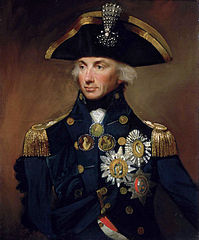


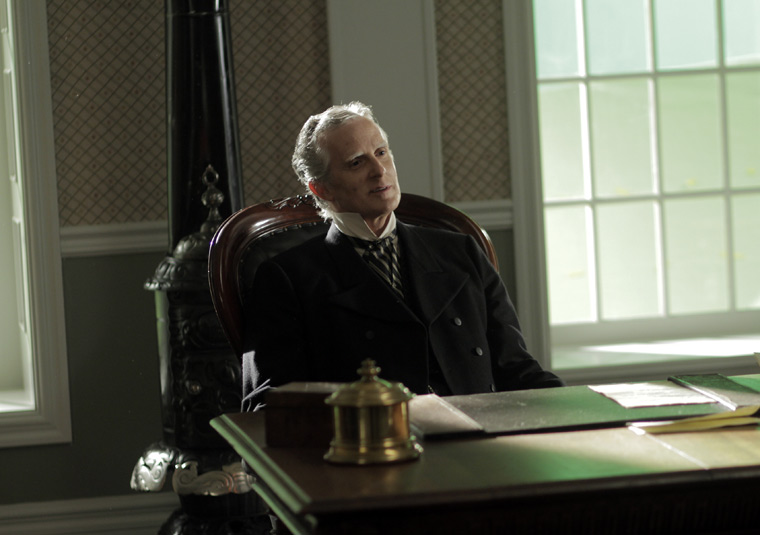

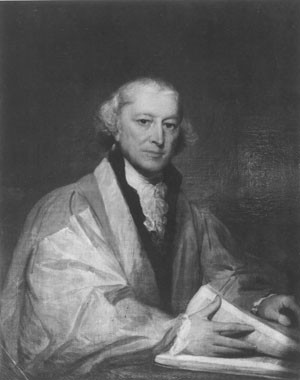
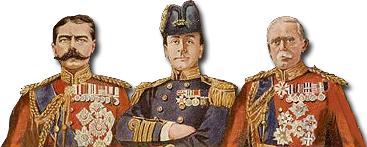


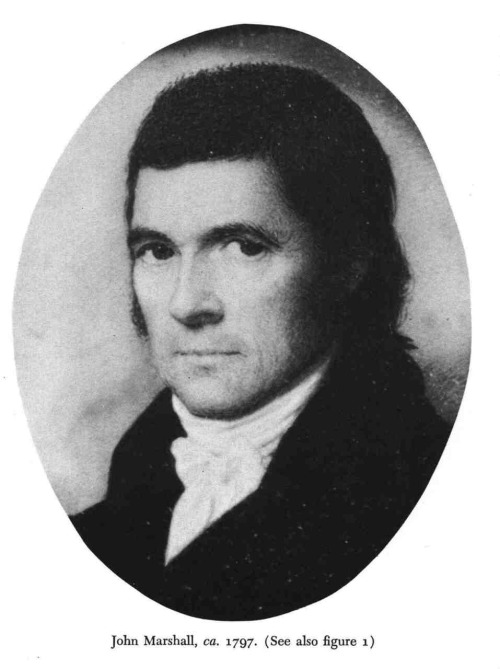




.jpg)







